
Past Award Winners
Please use the filters below to view the recipients from a specific year
Kay E Davies
Kay E Davies
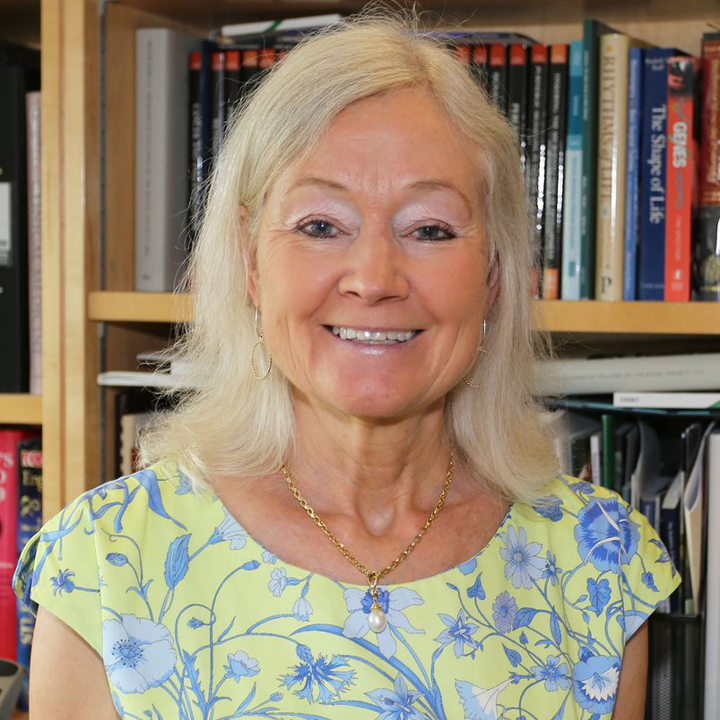
The 2020 Centenary Award was presented to Professor Dame Kay E Davies of the University of Oxford, UK.
Kay completed her D.Phil studies at the Department of Biochemistry, University of Oxford. After a Royal Society Fellowship in France she moved back to St Mary’s Hospital Medical School to study Duchenne muscular dystrophy (DMD), a progressive muscle wasting disease. In 1984, as a MRC Senior Fellow, she moved back to Oxford to work on the molecular analysis of neurological disorders. She was appointed Professor of Genetics and then Dr Lee’s Professor of Anatomy and set up the MRC Functional Genomics Unit to apply genomics to genetic disease analysis. Her own group focuses on the development of therapeutic strategies for DMD. Kay’s earlier work paved the way for the use of mini dystrophin gene delivery using AAV and contributed to the exon skipping approach to therapy. She also discovered the dystrophin related protein, utrophin, and demonstrated that increased levels of utrophin can compensate for the lack of dystrophin in the mdx mouse model of the disease. This has led to the identification of small molecules which increase utrophin in adult mdx muscle and prevent pathology. Kay co-founded Summit Therapeutics to translate her work into the clinic. She is a founding fellow of the UK Academy of Medical Sciences and was elected a Fellow of the Royal Society in 2003. She was a Governor of the Wellcome Trust from 2008-17 and Deputy Chairman from 2013-2017. Kay was made Dame Commander of the British Empire for services to science in 2008.
Kay said: “I am very honoured and delighted to have my work recognised in this way by the Biochemical Society. I am also very grateful to all the talented researchers I have had the privilege to work with over the years.”
Kay presented her Award lecture on Wednesday 29 July 2020 as part of the Biochemistry Focus webinar series. View the recording.
Stephan Uphoff
Stephan Uphoff

The 2020 Colworth Medal will be awarded to Dr Stephan Uphoff of the University of Oxford, UK.
Stephan obtained his PhD at Oxford and with funding from a Sir Henry Wellcome fellowship, and then pursued postdoctoral research at Harvard Medical School and the University of Oxford. Stephan’s research focuses on understanding the mechanisms of DNA repair and mutagenesis in bacterial cells. Despite the fundamental and medical importance, it remains unclear which processes cause mutations and how mutational mechanisms are regulated in cells. Stephan’s group at the University of Oxford takes a quantitative multi-disciplinary approach to address these questions. A key aspect of his research is the development of single-molecule microscopy techniques to observe molecular processes inside living cells. He established a single-molecule tracking technique that allowed visualizing individual DNA repair proteins as they searched for and repaired DNA damage. Stephan’s research also provided insight into the mechanisms that determine the long-term fates of bacteria in response to DNA damage and other stress conditions. Stephan discovered that the expression of DNA repair proteins varies substantially between genetically identical cells, even when they grow in a uniform environment. Evidence of cell-to-cell heterogeneity in mutagenesis raises the possibility that evolutionary processes may be driven not by the bulk population, but by subpopulations of cells with elevated mutation rates. Stephan was able to measure how mutation rates changed in real-time in response to DNA damage and showed how each mutation event coincided with other molecular processes in the same cells. Stephan also revealed the dynamics of mutagenesis in bacteria treated with antibiotics, paving the way to find out which mutational processes drive the evolution of antibiotic resistance, and ultimately devise approaches to counteract this major threat to human health.
Stephan said: “It is a big honour to receive this award. The UK offers a fantastic research environment with great opportunities for young researchers. I hope we will foster this culture of openness and maintain a thriving research environment that promotes fundamental and interdisciplinary research.”
Read Stephan's article published in Biochemical Society Transactions - Bacterial phenotypic heterogeneity in DNA repair and mutagenesis.
Stephan presented his Medal lecture on Thursday 15 April 2021 as part of the Biochemistry Focus webinar series. View the recording.
Andrew Hammond
Andrew Hammond
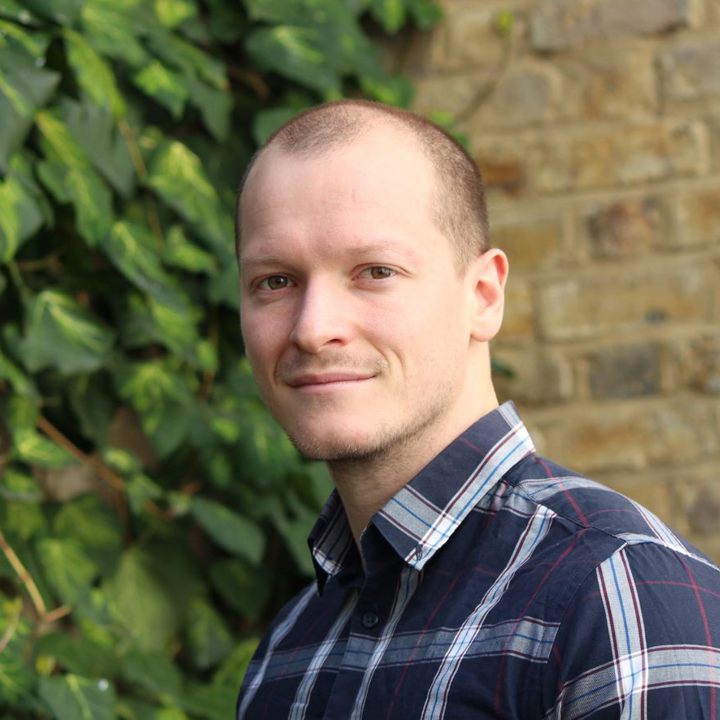
One of the two 2020 Early Career Research Awards was presented to Andrew Hammond of Imperial College London, UK.
Andrew completed his PhD at Imperial College London working on gene drives. Gene drives have incredible potential to modify entire populations of the malaria mosquito by biasing their own inheritance. Andrew’s PhD was focused upon finding suitable targets in the mosquito genome, and establishing CRISPR technologies in the mosquito to test its potential as a gene drive. Andrew’s primary PhD research demonstrated the first gene drive system designed to suppress populations of the malaria mosquito, including the first use of CRISPR in the African malaria mosquito. Andrew found that in caged release experiments, these gene drives spread, but were soon forced out of the population as a result of evolved resistant mutations. Andrew then focused on targeting sites in the genome that might be unable to tolerate the types of mutations that had previously been shown to confer resistance, identifying an extremely conserved site in the a region of the doublesex gene that is required for female development and built a gene drive designed to target this. By building in additional improvements to the drive design, it was able to spread very quickly through caged populations, without selecting for resistance, and ultimately eliminating the entire mosquito populations. Alongside this research, Andrew also co-developed the first CRISPR-based system to bias the sex ratio – a key process needed to develop several strategies for pest and vector control. Andrew has recently been awarded a Sir Henry Wellcome Fellowship to initiate a new line of research aimed at understanding the neurobiology underlying mosquito attraction to humans. This work will be undertaken at John’s Hopkins University, Imperial College London, and the University of Oxford.
Andrew said: “I cannot express how delighted I am to be awarded the Early Career Research Award from the Biochemical Society! I have been incredibly fortunate to have been based in such a fantastic lab over the past 7 years, with brilliant colleagues such as Dr Roberto Galizi and Kyros Kyrou. I must thank Professor Austin Burt who has been an inspirational mentor throughout my career and whose theory of gene drive first attracted me to the research. The two people I am most grateful to are my PhD supervisors, Dr Tony Nolan and Professor Andrea Crisanti – who have showered me with abundant motivation, advice and support throughout my PhD and post-doctoral research.”
On 11 June 2020, Dr Andrew Hammond, one of the Biochemical Society's Early Career Research Awards recipients, presented his work on 'Building gene drives to beat malaria' as part of the Biochemistry Focus webinar series. View the recording
Sara Priego Moreno
Sara Priego Moreno
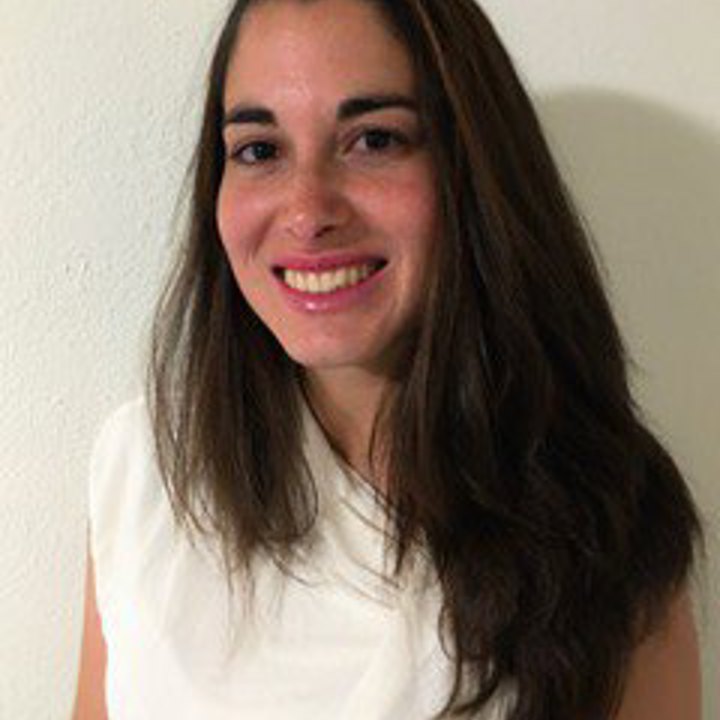
One of the two 2020 Early Career Research Awards will be presented to Dr Sara Priego Moreno of the Salk Institute for Biological Studies, USA.
Sara’s research has focused on understanding the molecular mechanisms that govern the poorly characterized termination stage of eukaryotic DNA replication. Using egg extracts from the African clawed frog Xenopus laevis to run in vitro DNA replication reactions, Sara was able to characterize for the first time the biochemistry underlying one of the most important events taking place during replication termination: Replisome disassembly upon replication forks convergence. Sara discovered that ubiquitylation of the replisomes by the ubiquitin ligase Cullin2LRR1 during termination of replication forks and further processing by the segregase p97 drove the extraction of the replisomes from the DNA. These discoveries had a very strong impact in the replication and genome instability fields as they have unveiled fundamental molecular mechanisms and improved understanding of the termination stage of DNA replication. After completing her PhD and a six month postdoctoral position at the University of Birmingham, Sara joined the Salk Institute for Biological Studies in California, USA. Sara’s research is now focused on the understanding of replication mechanisms required for the maintenance of the essential telomeric DNA in human primary and cancer cells.
Sara said: “I was absolutely delighted and extremely happy when I found out that I was a recipient for The Early Career Research Award 2020 of the Biochemical Society. I want to give a big thanks to my wonderful PhD supervisor, Dr Aga Gambus, for her constant support throughout my PhD project and for always transmitting her enthusiasm and passion for science. I also want to thank my great colleagues, for the time and effort they spent towards my project and for making the lab a very friendly, exciting and fun place to work every day. I may be the one wining this award but this would not be possible without their help.”
Sara presented her Award lecture on Thursday 16 July 2020 as part of the Biochemistry Focus webinar series. View the recording.
Read Sara's article published in Biochemical Society Transactions - Mechanisms of eukaryotic replisome disassembly
Wai-Hong Tham
Wai-Hong Tham
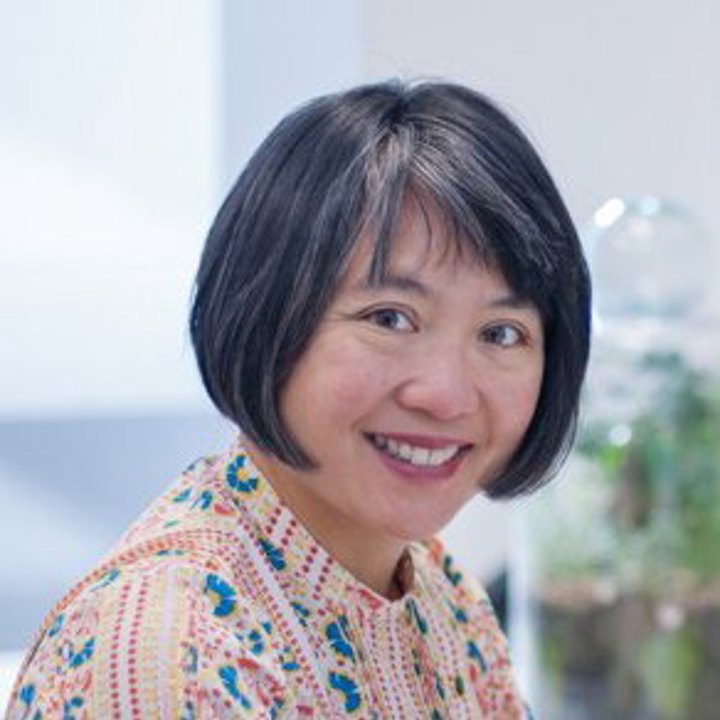
The 2020 International Award was presented to Associate Professor Wai-Hong Tham of the Walter & Eliza Hall Institute of Medical Research, Australia.
Wai-Hong’s research explores the mechanisms regulating successful infection of malaria parasites within the human host. Her team has identified human red blood cell proteins that serve as entry portals for malaria parasites. By providing an accurate molecular, biochemical and structural understanding of how malaria parasites infect red blood cells, her contributions provide insights into the rational design of novel inhibitors and vaccine targets against malaria. She has also identified parasite proteins that bind to human immune regulators to subvert the human immune system for parasite survival. Her group discovered the important role that parasite surface proteins play in immune evasion strategies; the discovery of structural scaffolds that unite the red blood cell binding domains of parasite adhesins and the identification of a new invasion pathway for Plasmodium vivax. These breakthrough discoveries significantly advanced understanding of the complex interplay between malaria parasites and the human host, and have led to the development of novel therapeutics against malaria.
Wai-Hong said: “I am absolutely delighted and humbled to be receiving this award. This award is a wonderful recognition of our research which would not have been possible without amazing collaborators, postdocs and research students and I am deeply grateful for their support. A significant part of this research has been carried out at the Walter and Eliza Hall Institute in Melbourne Australia, which always provide such an enriching scientific environment and a gaggle of supportive colleagues”.
Wai-Hong Tham presented her Award lecture on Wednesday 21 August 2019 at the ‘27th FAOBMB & 44th MSBMB Conference’ in Malaysia.
Sarah Teichmann
Sarah Teichmann
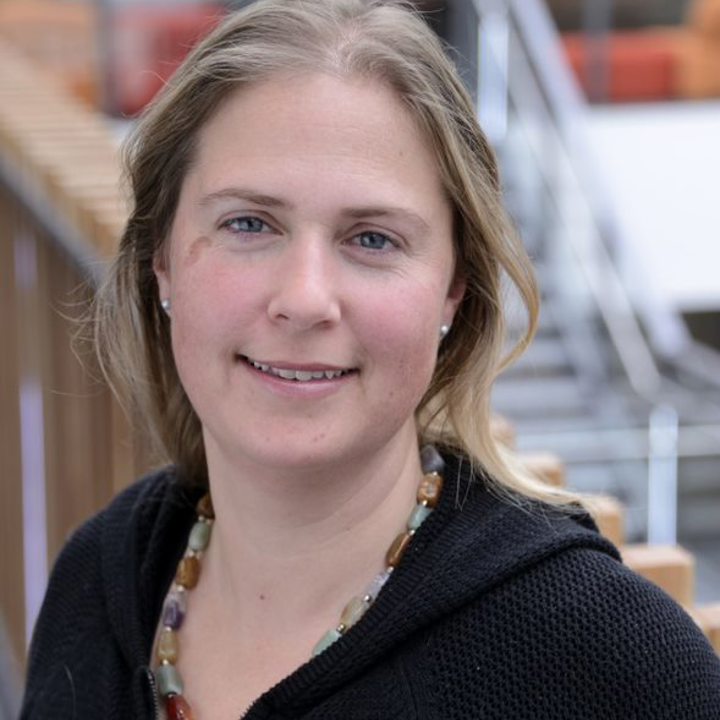
The 2020 GlaxoSmithKline Award was presented to Dr Sarah Teichmann of the Wellcome Sanger Institute, UK.
Sarah is Head of Cellular Genetics at the Wellcome Sanger Institute. Her work focuses on deciphering the immune system with genomics and bioinformatics approaches. She co-chairs the international Human Cell Atlas Consortium together with Aviv Regev (Broad Institute). Sarah did her PhD at the MRC Laboratory of Molecular Biology, Cambridge, UK with Dr Cyrus Chothia, FRS and was a Beit Memorial Fellow at University College London with Professor Dame Janet Thornton, FMedSci, FRS. She started her group at the MRC Laboratory of Molecular Biology in 2001. In 2013, she moved to the Wellcome Genome Campus in Hinxton, Cambridge, jointly with the EMBL-European Bioinformatics Institute and the Sanger Institute. In 2016 she became Head of the Cellular Genetics Programme at the Sanger Institute. Sarah is also a Director of Research in the Cavendish Laboratory, University of Cambridge and Senior Research Fellow at Churchill College. Sarah is an EMBO member and a Fellow of the Academy of Medical Sciences, and her work has been recognized by a number of UK and international prizes, including the Biochemical Society Colworth Medal in 2011.
Sarah said: “I am deeply honoured to be awarded The GlaxoSmithKline Award for 2020 by the Biochemical Society, which recognises the work by my talented team and our collaborators. Together we have driven forwards the application of single cell genomics and computation to human tissues, providing new insights into the molecular and cellular details of development and disease.”
Sarah presented her Award lecture on Friday 26 June 2020 as part of the Biochemistry Focus webinar series. View the recording.
Read Sarah's article published in the Biochemical Journal - Cell Atlas technologies and insights into tissue architecture
Jo Rushworth
Jo Rushworth
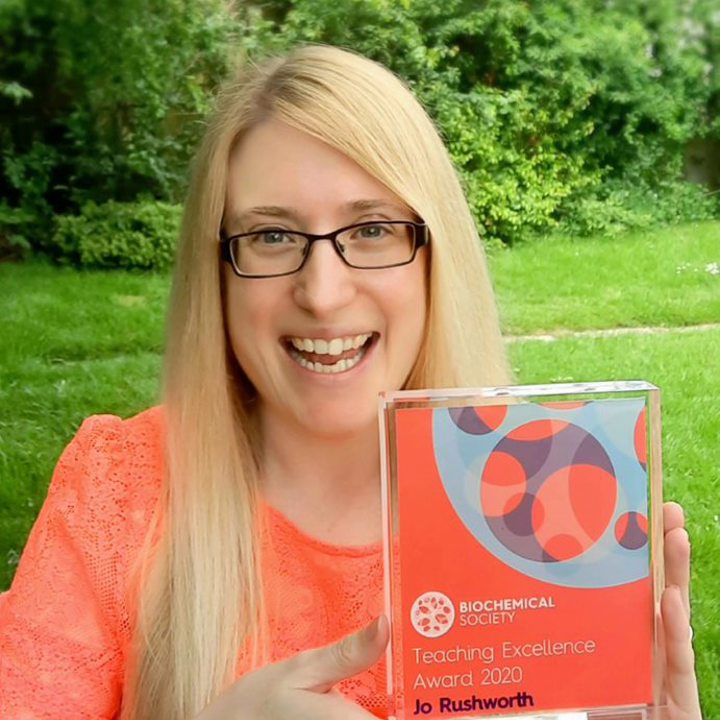
The 2020 Teaching Excellence Award was presented to Dr Jo Rushworth of De Montfort University, UK.
Four years after commencing her first lectureship, Jo was one of the youngest ever recipients of a National Teaching Fellowship in 2018. With 100 nominations for the Vice-Chancellor’s Distinguished Teaching Award, which she won in 2016. Jo has championed De Montfort University’s inclusive teaching and learning strategy, known as Universal Design for Learning. Her approach to teaching provides flexible ways for all students to learn and to demonstrate their knowledge, including songs, video podcasts and chocolate-based analogies for cellular respiration. Jo enjoys encouraging her students to be active learners, using team-based learning, flipped classroom and flipped feedback, voting using Mentimeter and animal noises, summary sheets and drop-in sessions. Jo is particularly interested in developing teaching and learning methods that work for large, diverse groups of students. Jo is a passionate advocate of co-creation and works with her students to create their learning, for instance by appointing a student module leader and a team of student biochemistry lecturers. Jo is a highly reflective lecturer who enjoys trying out new and innovative ideas and loves to inspire other lecturers to do the same. She devised feedback boxes which are now used across her faculty, to help lecturers make the most of everyday feedback from students. Jo applied her novel biochemistry teaching methods to co-create a new Post-Graduate Certificate in Higher Education, which has seen her teaching, assessment and feedback methods be adopted across and beyond her University.
Jo said: “I feel so honoured and humbled to receive the Teaching Excellence Award. I have been a member of the Biochemical Society since I was an undergraduate student and I was always inspired when my lecturers were featured in The Biochemist. Everything I do is for my students and I am just so grateful for their tremendous support and inspiration.”
Jo presented her Award lecture on Thursday 13 May 2021 as part of the Biochemistry Focus webinar series. View the recording.
Gurdyal S Besra
Gurdyal S Besra

The 2020 Morton Lecture was awarded to Professor Gurdyal S. Besra of the University of Birmingham, UK.
Gurdyal’s research focuses on improving our understanding of Mycobacterium tuberculosis cell-wall assembly, the discovery of novel mycobacterial lipid antigens, the identification of novel drug targets for tuberculosis, and the identification and chemical synthesis of mycobacterial CD1 lipids for evaluation of their immunological properties for a range of medical applications. His research group played a pivotal role in advancing our understanding of the biosynthesis of mycolic acids and elucidation of the mechanism(s) of action of existing and novel mycolate inhibitors. Gurdyal is now starting to exploit his fundamental M. tuberculosis research findings in terms of drug targets, using specialised in vitro assays and phenotypic whole-cell screens to provide new hit-to-leads for tuberculosis. With international collaborators, Gurdyal has also been at the forefront in the discovery of M. tuberculosis T-cell antigens and elucidation of the CD1 antigen presentation pathway. He is currently exploring the immunotherapeutic potential of glycosyl ceramides and synthetic small-molecules against tumours, inflammatory diseases of the nervous system, systemic lupus erythematosus, and tuberculosis by designing analogues that can effectively promote the appropriate functions of CD1d-restricted T-cells, to treat diseases in which it is important to alter Th1 or Th2 polarisation.
Gurdyal said: “I am delighted with this award that recognises the outstanding work members of my laboratory, past and present, have produced over the years.”
Gurdyal presented his Award lecture on Wednesday 7 July 2021 as part of the Biochemistry Focus webinar series. View the recording.
Read Gurdyal's article published in the Biochemical Journal - The thick waxy coat of mycobacteria, a protective layer against antibiotics and the host's immune system
Judy Hirst
Judy Hirst
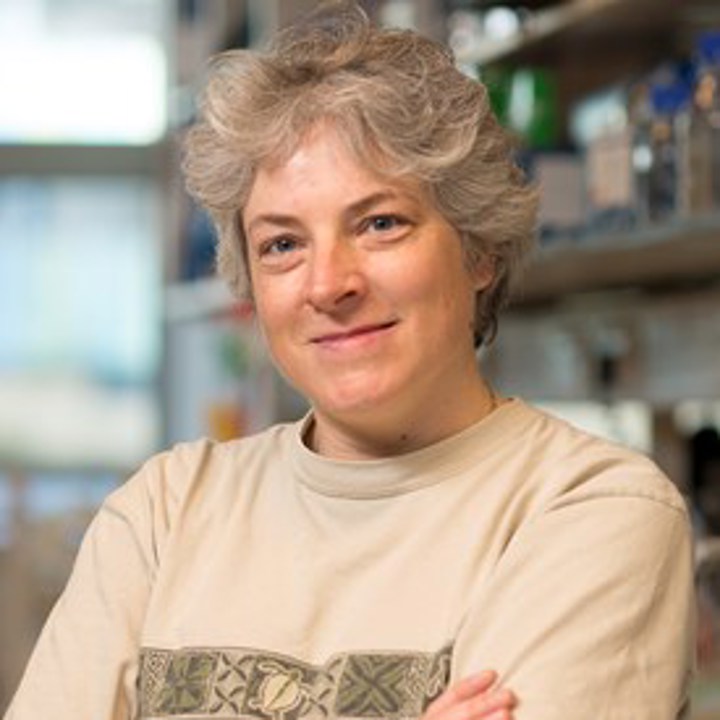
The 2020 Keilin Memorial Lecture was awarded to Professor Judy Hirst of MRC Mitochondrial Biology Unit, UK.
Judy’s research has made pivotal contributions to understanding energy conversion in complex redox enzymes: how they capture the energy released by a redox reaction to power proton translocation across a membrane, or catalyse the interconversion of chemical bond energy and electrical potential. She is known particularly for her work on mammalian respiratory complex I (NADH: ubiquinone oxidoreductase), an energy-transducing, mitochondrial redox enzyme of fundamental and medical importance, and for solving its structure by electron cryomicroscopy. Judy was elected as a Fellow of the Royal Society in 2018.
Judy said: “I am delighted to have been selected to receive the Keilin Memorial Lecture Award. I feel this award recognizes the importance of taking on challenging long-term research projects at the boundaries of basic and biomedical science, and have been fortunate to have been supported by The Medical Research Council throughout – as well as by a team of talented and enthusiastic students and postdocs.”
Judy presented her Award lecture on Monday 7 December 2020 during ‘Low molecular weight thiols: lessons learned and new perspectives’ online conference.
Matthew Dalby
Matthew Dalby
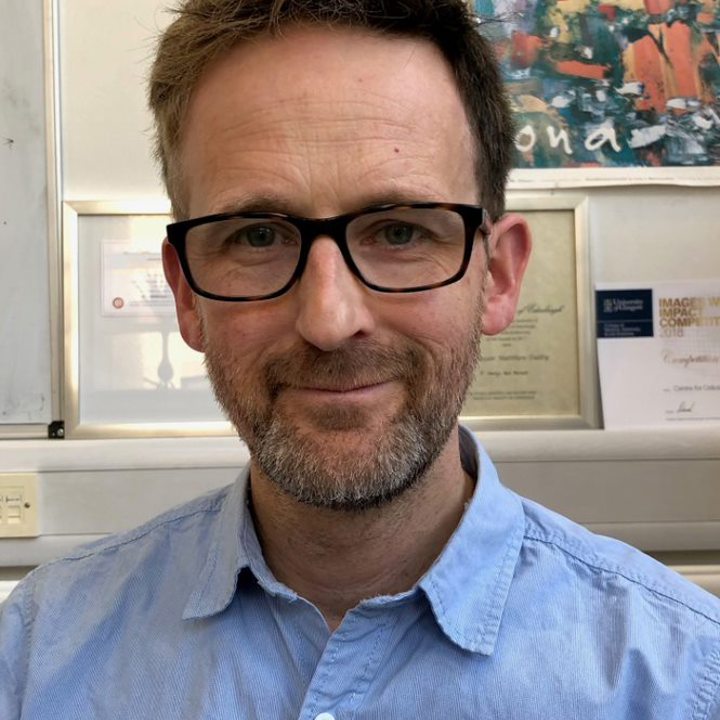
The 2020 Industry and Academic Collaboration Award was presented to Professor Matthew Dalby of University of Glasgow, UK.
Matthew obtained his PhD at Queen Mary, University of London on osteoblast response to bioactive composites. After becoming interested in the effects of topography on cell function, he moved to Glasgow in 2000 to work for Adam Curtis, Chris Wilkinson and Mathis Riehle. He secured a BBSRC David Phillips Fellowship to explore mesenchymal stem cell response to nanotopography. In 2014 he became Professor of Cell Engineering at the University of Glasgow and diversified his research to include understanding of cells with protein nanonetworks / ultra-low dose growth factor delivery which recently resulted in a first veterinary trial in a dog where a large bone defect in the front leg was fully regenerated and is now functional and load-bearing. With collaborators, Matthew has developed a nanovibrational bioreactor, the Nanokick, that can be used to drive three dimensional bone formation with no need for material or chemical inducement. More recently, he led a successful bid for an EPSRC-SFI Centre for Doctoral Training where a lot of industrial support was achieved. The CDT aims to build a community of interdisciplinary scientists to develop UK standing in development of humanised 3D tissues to reduce animal experimentation in drug discovery. Matthew has been elected as a Fellow of the Royal Society of Edinburgh.
Matthew said: “I was very surprised, but clearly delighted to receive news of winning this award. Over the last few years much of my effort has focused on engaging UK industry to form a community to support development of PhD students into diverse careers. This award makes all this effort feel very worthwhile.”
Matthew presented his Award lecture on Thursday 4 June 2020 during the ‘ELRIG-Biochemical Society webinar: Cellular Therapy’.
Read Matthew's article published in the Biochemical Journal - Hurdles to uptake of mesenchymal stem cells and their progenitors in therapeutic products
James Barber
James Barber
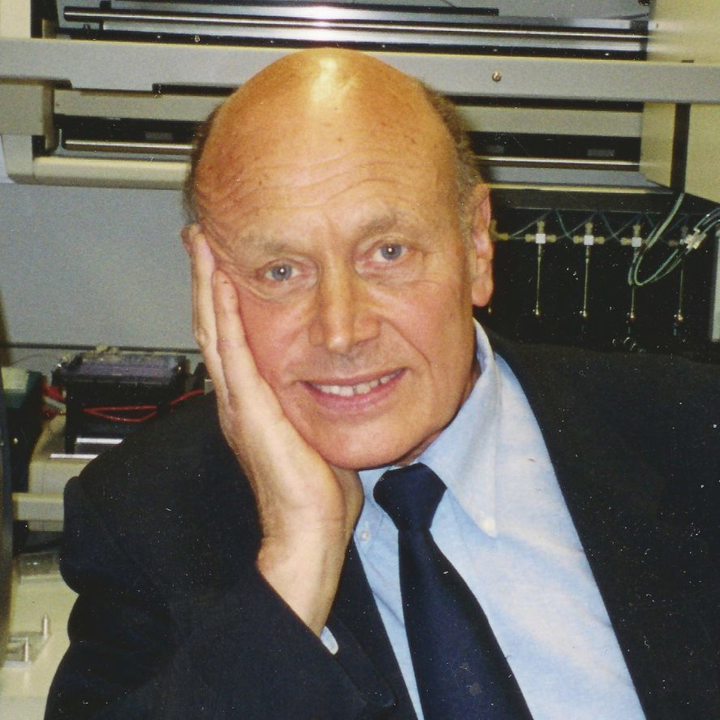
The 2020 Heatley Medal and Prize was awarded to Professor James Barber of Imperial College London, UK.
James is a senior research investigator and Emeritus Ernst Chain Professor of Biochemistry at Imperial College London. He is also Visiting Canon Professor to the School of Material Science and Engineering (MSE) at Nanyang Technological University (NTU), Singapore. The focus of his research has been the investigation of photosynthesis and the functional role of the photosystems with emphasis on their molecular structures. Much of his work has focused on Photosystem II, a biological machine able to use light energy to split water into oxygen and reducing equivalents. He reported the first fully refined X-ray structure of this enzyme in 2004. More recently, he has turned his attention from natural to artificial photosynthesis and the production of renewable energy based on the capture and storage of solar energy. To do so he has collaborated with chemists, electrochemists and material scientists to develop appropriate and novel technology. Much of this work has been spurred by the establishment of the Solar Fuels Laboratory within the School of Material Sciences at NTU. James has been elected a Fellow of the Royal Society of Chemistry, a Member of the Academia Europaea, Selby Fellow of the Australian Academy of Science, Foreign Member of the Royal Swedish Academy of Sciences, and a Fellow of the Royal Society and his work has been recognized by a number of UK and international prizes, including the Biochemical Society Novartis Medal and Prize.
James said: “I feel extremely honoured to be awarded the Heatley Medal and Prize. I share this honour with all those who have worked with me over the years. I particularly wish to acknowledge my colleagues in the School of Material Sciences and Engineering at NTU, Singapore with whom I am working on electrochemical systems to mimic natural photosynthesis. The overall challenge is to capture solar energy efficiently and store it in chemical bonds without carbonisation (for example as hydrogen). This is a daunting problem on a global scale but must be solved to sustain ordered human society into the future. As the Sir Ernst Chain Professor of Biochemistry at Imperial College, it is appropriate for me to recognise that Norman Heatley, a colleague of Ernst Chain at Oxford, was a key contributor to the discovery and application of penicillin. It has been surmised that he also deserved the 1945 Nobel Prize along with Ernst Chain, Alexander Fleming and Howard Flory. However the Nobel prize for Medicine or Physiology is limited to three recipients in any one year. I am therefore particularly proud to receive this medal which recognises Heatley’s contributions to one of the major discoveries in medical sciences, one which has saved billions of lives.”
Maria Grazia Spillantini
Maria Grazia Spillantini
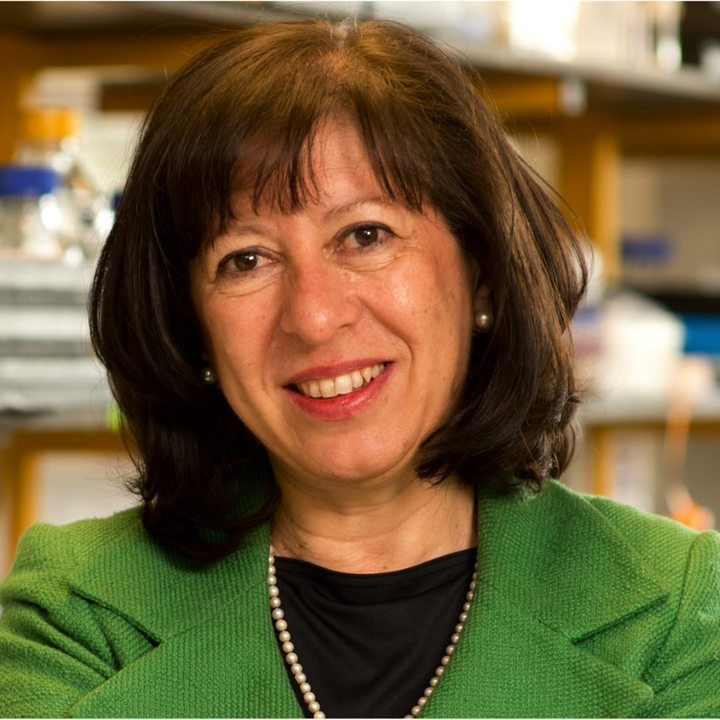
The 2020 Thudichum Medal was awarded to Professor Maria Grazia Spillantini of the University of Cambridge, UK.
Maria is Professor of Molecular Neurology in the Clinical School of the University of Cambridge. Maria obtained her PhD in Molecular Biology from the University of Cambridge working at the Medical Research Council Laboratory of Molecular Biology, in Dr Michel Goedert’s lab. Maria then worked as a postdoctoral fellow with Professor Sir Aaron Klug. In 1996 she moved to the Brain Repair Centre of the University of Cambridge in the Department of Clinical Neurosciences. Maria’s group works on the molecular neuropathology of diseases characterised by tau and alpha-synuclein aggregates. With her collaborators, she identified alpha-synuclein as the major component of the filaments that form the Lewy bodies in Parkinson’s disease and dementia with Lewy bodies and described one of the first mutations in the Tau gene leading to frontotemporal dementia and Parkinsonism linked to chromosome 17 for which she was awarded the Potamkin Prize of the American Academy of Neurology in 2000. She has been elected a Fellow of the Academy of Medical Sciences and Fellow of the Royal Society. She is Professorial Fellow at Clare Hall and a life member of Peterhouse, Cambridge and in 2018 she has been made “Knight Official of the Star of Italy” by the President of the Italian Republic.
Maria said: “I was surprised and very happy to receive this great honour for which I would like to thank the nominators, the committee who made the award and my collaborators over the years without whom this achievement would not have been possible.”
Maria presented her Medal lecture on Thursday 9 July 2020 as part of the Biochemistry Focus webinar series. View the recording.
